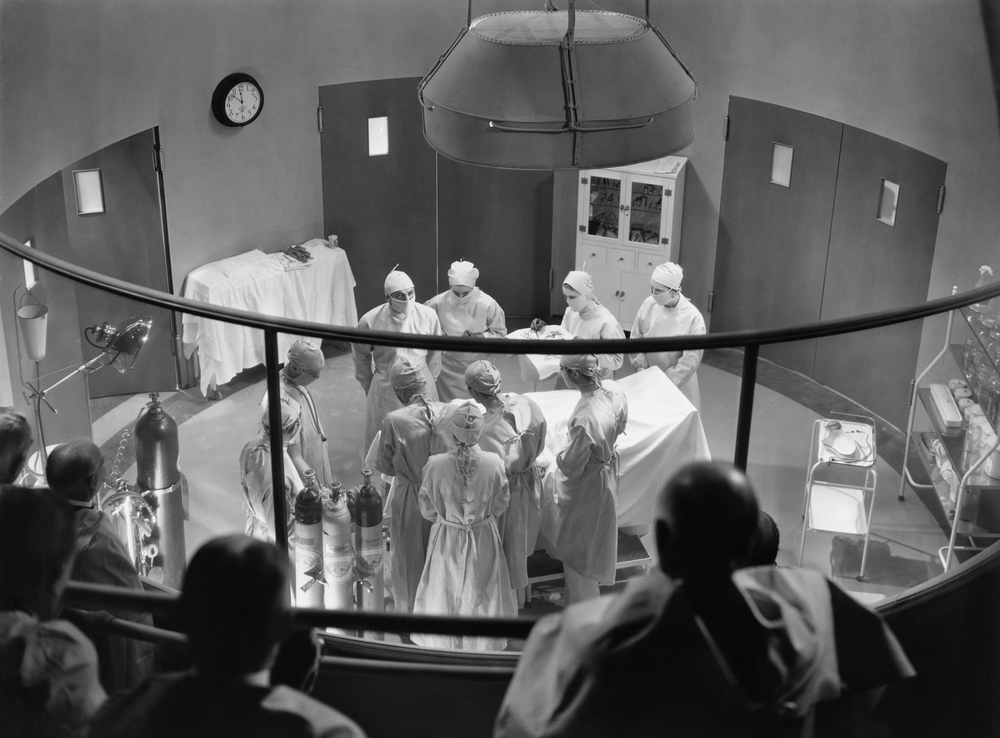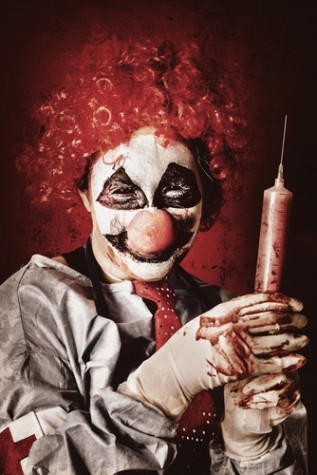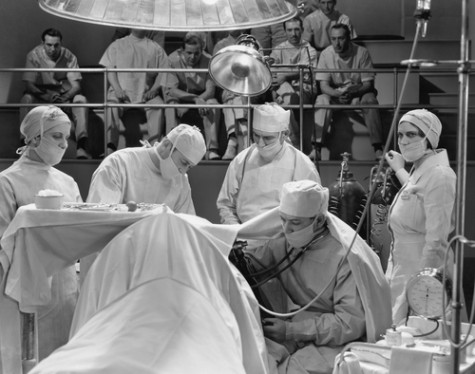This week LWON presents “Off Our Meds,” an examination of some scary issues in medicine. We won’t resort to fear mongering, because we don’t have to. Medicine is scary enough as it is.
 I still remember my first trip to the doctor. I was 18 years old and doubled over in terrible stomach pain. And when I walked into that office, I truly didn’t know whether to expect a monster or a wizard with a magic wand.
I still remember my first trip to the doctor. I was 18 years old and doubled over in terrible stomach pain. And when I walked into that office, I truly didn’t know whether to expect a monster or a wizard with a magic wand.
Yes, the decimal point is in the right place. Before 18, I had never been to the doctor. I was raised in Christian Science and beyond the legally required vaccinations, never went to the doctor. Contrary to popular belief, Christian Scientists aren’t forbidden from going to the doctor, they just – you know – don’t.
Partly it’s because of religious belief but partly – and here I can speak only for myself and a few family members – it’s fear. Fear of the unknown, fear of cold metal instruments, fear of losing control.
Fear, in short, of the theater of medicine.
As some readers may know, I am fascinated with things like pain and how the mind causes chemical or physiological changes in the body. This past summer I published a story on placebos that looked at their biology (also for LWON here, here, and here).
 But I want to take a second and look at the other side of that coin – the doctor’s office itself. Scientists are discovering that one of the most powerful tools in a doctor’s kit is something called nonspecific effects, known informally as bedside manner. It’s all the stuff you can’t measure – how nice her office is, how she speaks, maybe what kind of diploma she has on her wall.
But I want to take a second and look at the other side of that coin – the doctor’s office itself. Scientists are discovering that one of the most powerful tools in a doctor’s kit is something called nonspecific effects, known informally as bedside manner. It’s all the stuff you can’t measure – how nice her office is, how she speaks, maybe what kind of diploma she has on her wall.
“It’s something that actually affects treatment enormously. There are ideas that more than 50 percent, some people say more than 70 percent, of anti-depression treatments are actually ‘nonspecific effects.’ If that is true, it’s huge and almost no research is being done on it,” says Predrag Petrovich, a neuroscientist who studies pain, placebos, and the brain.
 The common number people throw around is 30 percent, but that’s one of those numbers that is so vague as to be nearly worthless. That’s because it varies so much, depending on the disease.
The common number people throw around is 30 percent, but that’s one of those numbers that is so vague as to be nearly worthless. That’s because it varies so much, depending on the disease.
A surprisingly large number of ailments are susceptible to the effects of medicine’s theatrics. Nausea, pain, Parkinson’s disease, irritable bowel syndrome – all seem much more pliable, depending on the doctor.
But the details of how this works are still coming into focus. What’s stronger, a friendly voice or an authoritative one (both seem to be crucial)?
Lab coats and stethoscopes help, that much we know. For a long time, people have just assumed that bedside manner was something you tack onto the top of a treatment, a little like a tip. But it turns out that really powerful drugs actually decrease placebos.
By that logic, weak drug or sham treatments should increase the placebo effect, but we really don’t understand how that works. I mean, how do you separate the drug from the treatment? People have tried using specifically unfriendly caregivers as a sort of control, or just not giving treatment at all (since walking into a doctor’s office is in itself a treatment for some people).
 Perhaps the best control group would be kids like me – religious kids witout a preconceived notion of what the doctor does. Or in my case, a negative one. My first exposure to bedside manner didn’t exactly fill me with confidence. The doctor who treated me tapped my belly a few times and proclaimed my pain to be “growing pains” and moved on.
Perhaps the best control group would be kids like me – religious kids witout a preconceived notion of what the doctor does. Or in my case, a negative one. My first exposure to bedside manner didn’t exactly fill me with confidence. The doctor who treated me tapped my belly a few times and proclaimed my pain to be “growing pains” and moved on.
Looking back, he was an inept doctor and I was a bad patient. He never asked me if I had ever travelled abroad and I never thought to mention that I had been to Mexico for two weeks the year before. It’s likely that the recurring stomach pain that plagued me until I took my first set of gut antibiotics was some kind of parasite from that trip.
But that is where the theater ends and the real work has to begin. Beyond the pagentry, the gadgetry, and the friendly words, medicine is about a patient and his physician asking questions, answering them honestly, and working together. After all, isn’t that what good co-stars should do?
Photo Credits: Shutterstock.com